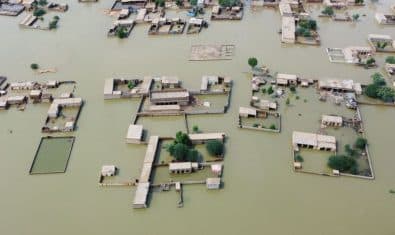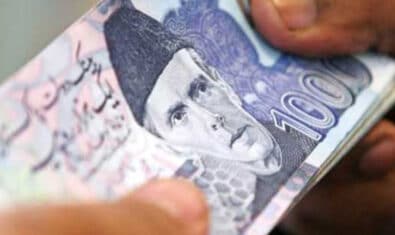According to the latest UN report on the World Economic Situation, Pakistan’s economic growth is projected to slow down markedly in 2019 and 2020 to below 4.0%, after an estimated expansion of 5.4% in 2018.
The report released by the United Nations Department of Economic and Social Affairs said that Pakistan’s economy is facing severe balance of payment difficulties, amid large fiscal and current account deficits with a decline in international reserves and mounting pressures on the domestic currency.
The economic outlook for Pakistan is challenging, and it encompasses significant downside risks said the report.
The UN survey says that the macroeconomic imbalances and financial fragilities pose significant risks of a further slowdown, which emphasizes the need for policy actions.
This highlights some long-standing challenges for Pakistan’s economy.
To promote more sustainable medium-term growth, policymakers need to encourage much-needed infrastructure investment to alleviate chronic energy shortages while addressing external imbalances, particularly by promoting export growth, the report said.
On one hand, economic activity continues to be underpinned by robust private consumption, improvements in energy supply, and infrastructure initiatives of the China-Pakistan Economic Corridor.
The level of public debt is also high —close to 70% of GDP — with rising sustainability concerns.
During the first eight months of 2018, Pakistan’s central bank raised its policy interest rates by 275 basis points to 8.5%, and expectations are that the tightening will continue further in 2019. Despite this tightening, the significant depreciation of the domestic currency has increased consumer price inflation.
The government is currently negotiating for official assistance from the IMF to address macroeconomic and fiscal challenges for the second time in the last five years.
Entering an IMF programme by 2019 would necessitate a sharp fiscal consolidation, In fact, rising expenditures and high debt repayment obligations have maintained a relatively high fiscal deficit, about 4.8 percent of GDP the report says.
About the economic outlook for South Asia, the UN report says regional GDP is expected to expand by 5.4% in 2019 and 5.9% in 2020, after an estimated expansion of 5.6% in 2018. South Asia’s outlook remains moderately favorable, but economic trends are highly divergent across countries.
Via UN






















NAB should investigate UN assets and arrest it as it is also becoming patwari. May be assets beyond income suits here?